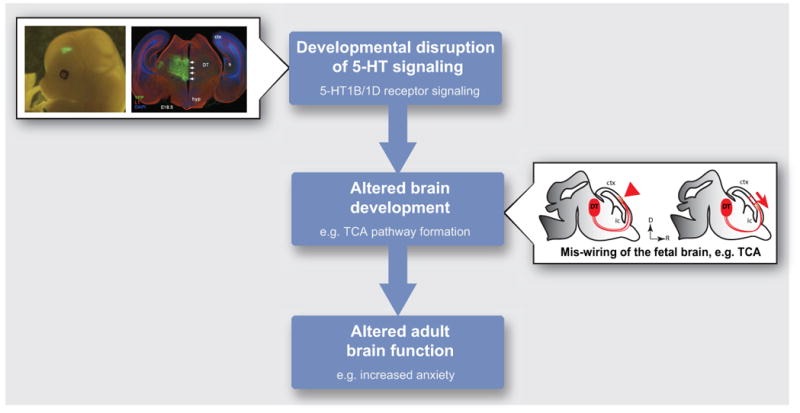Figure 1.

Developmental disruptions of 5-HT signaling in utero can lead to abnormal brain function at adult stages. Altering 5-HT signaling in vivo by in utero electroporation of 5-HT1B/1D receptors siRNAs or over-expression plasmids in the dorsal thalamus (DT) affects the formation of the thalamocortical axon (TCA) pathway in the fetal brain. Results suggest that this 5-HT-mediated disruption of fetal brain wiring mechanisms could contribute to long-term alteration of brain function. Abnormal 5-HT signaling in the fetal brain could result from altered function or expression of 5-HT receptors, as described in the text, or from altered availability of the ligand itself, 5-HT. Hyp, hypothalamus; ctx, cortex; ic, internal capsule.
